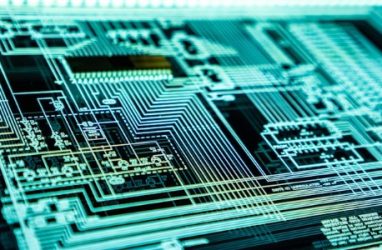Young Entry-Level Hires Can Drive Innovation and Transform Local Government
As local governments across the United States look to modernize services, increase efficiency, and better serve communities, a powerful and often underutilized force is emerging: the next generation of public servants. Young, entry-level local government employees bring fresh ideas, technological fluency, and a passion for innovation that could fundamentally reshape how local governments operate over the next decade.
With emerging technologies like cybersecurity, artificial intelligence (AI), and automation rapidly transforming the private sector, local governments have a unique opportunity to harness this momentum. By empowering new hires to lead the way in adopting and adapting these tools, municipalities can unlock smarter, faster, and more responsive public services.
The Value of a New Generation
Today’s young professionals have grown up with technology at their fingertips. They understand mobile apps, cloud computing, digital communication, and data analytics as second nature. For them, adapting to change isn’t a burden it’s a norm.
When local governments bring in new, entry-level talent, they aren’t just filling vacancies—they’re welcoming in:
- Digital fluency: Many young hires are already comfortable with software tools, social platforms, and automation processes that older systems struggle to incorporate.
- Fresh perspective: Entry-level employees often question the status quo, proposing new approaches that may be overlooked by long-tenured teams.
- Entrepreneurial energy: Many are driven by purpose and problem-solving rather than hierarchy, making them eager to contribute beyond their job descriptions.
How Emerging Technologies Enable Impact
Cybersecurity
Local governments are increasingly the targets of cyberattacks, yet many still operate with outdated systems and understaffed IT departments. Young cybersecurity professionals can:
- Introduce cutting-edge tools for intrusion detection, endpoint protection, and secure data storage.
- Implement training and awareness campaigns to build a security-first culture.
- Use cloud-native security solutions to replace legacy systems that are difficult to maintain.
Artificial Intelligence (AI)
AI offers massive potential for local governments to streamline operations and improve public service delivery. Entry-level tech hires can help:
- Deploy AI-powered chatbots to handle routine resident inquiries, freeing up staff time.
- Use machine learning to analyze data trends for better decision-making in areas like traffic, zoning, or emergency services.
- Automate document processing and internal workflows, reducing administrative burdens.
Automation and Smart Government
Automation isn’t just about replacing labor, it’s about making government more responsive and proactive. Young professionals can lead efforts to:
- Digitize paper-based forms and approval processes.
- Develop dashboards that provide real-time insights into operations.
- Integrate smart sensors and IoT (Internet of Things) to optimize utilities, waste collection, and infrastructure maintenance.
Empowering Entry-Level Innovators
To maximize the potential of new hires, local governments need to do more than simply bring them in, they must create environments where innovation can thrive. This includes:
- Mentorship and reverse mentorship: Pairing younger employees with experienced staff to facilitate two-way learning. Veterans share institutional knowledge, while new hires introduce modern tools and methods.
- Pilot programs and sandbox environments: Giving young professionals room to test ideas in small, controlled settings before scaling up.
- Clear paths to leadership: Offering professional development and advancement opportunities keeps talented individuals engaged and invested in public service careers.
- Cross-department collaboration: Encouraging entry-level staff to work across silos fosters creative problem-solving and system-wide improvements.
Looking Ahead: A Decade of Transformation
Over the next decade, the most forward-thinking local governments won’t just adopt new technologies—they’ll embed innovation into their culture. This transformation will be driven not solely by software or infrastructure, but by people—particularly the young, entry-level employees who bring new energy, digital literacy, and a bold vision for public service.
As cities and counties face mounting challenges—from climate resilience to equity and digital inclusion—these emerging leaders can help build the next generation of smarter, more connected, and more responsive local governments.






